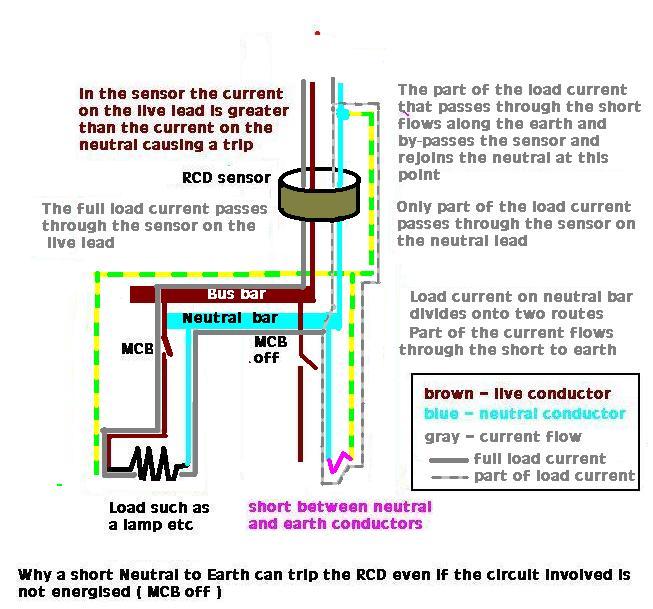1 The RCD will trip if the currents in the live and neutral differ by more than the rated trip current. A borrowed neutral can result in an RCD tripping/
2. It need not be an earth.
3. 30 mA or less can be fatal. RCD do NOT prevent lethal shocks, they reduce the risk of death.
4. agreed.
2. It need not be an earth.
3. 30 mA or less can be fatal. RCD do NOT prevent lethal shocks, they reduce the risk of death.
4. agreed.



